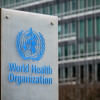India opposes WHO methodology to estimate Covid-19 deaths

India has opposed the methodology used by World Health Organization (WHO) for estimating deaths caused by Covid-19 in the country.
The Indian Health Ministry said, in a statement issued late last night, that the same mathematical model cannot be used to calculate the Covid-19 mortalities for a large country like India, geographically and population-wise, and for other countries with a smaller population like Tunisia.
India was responding to a New York Times article titled "India Is Stalling WHO's Efforts to Make Global Covid Death Toll Public" dated April 16, reports our New Delhi correspondent.
The NYT report claimed the WHO estimate will show India's death toll is at least four million, almost eight times the official numbers.
The Health Ministry said India has been in regular and in-depth technical exchange with WHO on the issue.
"It is very surprising that while New York Times purportedly could obtain the alleged figures of excess Covid-19 mortality in respect to India, it was "unable to learn the estimates for other countries," the statement said.
"The analysis while uses mortality figures directly obtained from Tier I set of countries, uses a mathematical modelling process for Tier II countries (which includes India). India's basic objection has not been with the result (whatever they might have been) but rather the methodology adopted for the same," it argued.
India has shared its concerns with the methodology along with other member-countries through a series of formal communications. During these exchanges, specific queries have been raised by India along with countries like Bangladesh, China, Iran, Syria, Ethiopia and Egypt regarding the methodology and use of unofficial sets of data, according to the statement.
It pointed out that the model gives two highly different sets of excess mortality estimates of when using the data from Tier I countries and when using unverified data from 18 Indian states. Such wide variation in estimates raises concerns about validity and accuracy of such a modelling exercise.

 For all latest news, follow The Daily Star's Google News channel.
For all latest news, follow The Daily Star's Google News channel. 








Comments